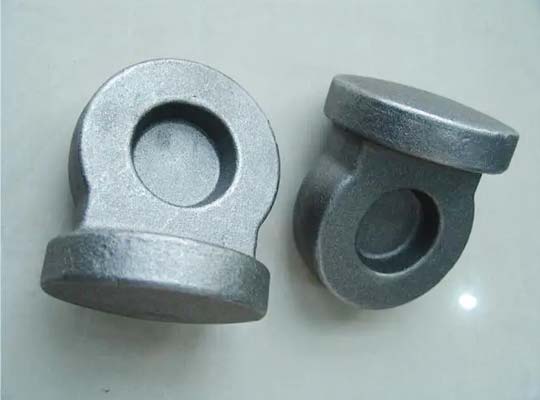- Contact Innally, Let you purchase forgings in China more favorable prices, products more assured!
- Hotline:+(86)15038323776 Email:innally@innally.com
What are the materials of blank forgings?
- Category: Metal forging, Steel forgings
- |
- Date: 04/11/2023
there are many kinds of blank forging materials, and different materials have different characteristics and application fields. When selecting the blank forging material, it is necessary to make a reasonable choice according to the actual needs and processing requirements to ensure the quality and performance of the forging to the best level.
Product Details
Blank forging is an important part of machinery manufacturing, and the choice of its material has a crucial impact on the quality, performance and processing difficulty of the forging. The following will introduce several common blank forging materials and their characteristics.
Carbon steel
Carbon steel is a commonly used blank forging material, which has high strength, hardness and wear resistance. In machinery manufacturing, carbon steel is widely used in a variety of tools, cutting tools, high-strength fasteners, shaft parts and so on. The disadvantage of carbon steel is that it is easy to rust, so it needs to be treated with rust prevention.
Alloy steel
Alloy steel is the addition of a certain amount of alloying elements in carbon steel, such as manganese, silicon, chromium, molybdenum, etc., to improve its strength, hardness, wear resistance and corrosion resistance. Alloy steel is widely used in various high-strength structural parts, wear-resistant parts and corrosion-resistant parts.

Cast iron
Cast iron is a material with lower strength and hardness, but it has better wear resistance, corrosion resistance and price advantages. Cast iron is widely used in various pump shells, valve bodies, reducer shells and other wear-resistant, corrosion-resistant parts. In order to improve its machinability, the cast iron blank forgings need to be annealed during processing.
Non-ferrous metal
In addition to the common steel materials, there are some non-ferrous metal materials are also widely used in the manufacture of blank forgings, such as aluminum, copper, titanium and so on. These materials have the advantages of lightweight, high strength, high stiffness, etc., and are suitable for various lightweight structural parts and high strength fasteners.
To sum up, there are many kinds of blank forging materials, and different materials have different characteristics and application fields. When selecting the blank forging material, it is necessary to make a reasonable choice according to the actual needs and processing requirements to ensure the quality and performance of the forging to the best level.
nannan
INNALLY mainly provides you with various types of cast and forged parts products. Welcome your inquiries! innally@innally.com
Related Products
Search
Forging center
- Steel forgings
- Aluminium alloy forging
- Titanium alloy forging
- Stainless steel forging
- Copper forging
- Automotive forgings
- Locomotive forging
- Bicycle forgings
- Motorcycle forging
- Rigging and fasteners
- Bearing forging
- Electric power fittings
- Marine forging
- Mechanical forgings for metalworking
- Mining machinery forgings
- Marine engineering forgings
- Construction machinery forgings
Popular product

© 2025. All Rights Reserved.






